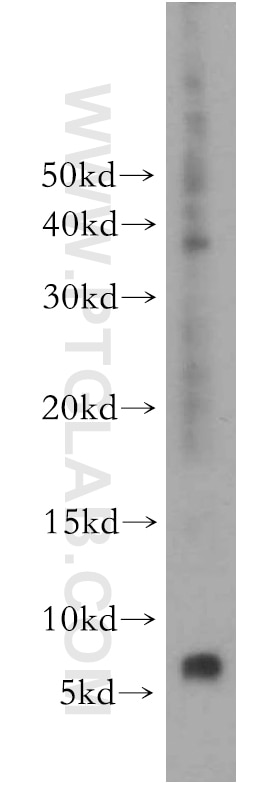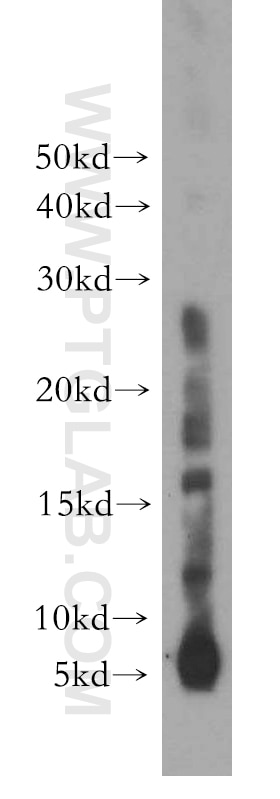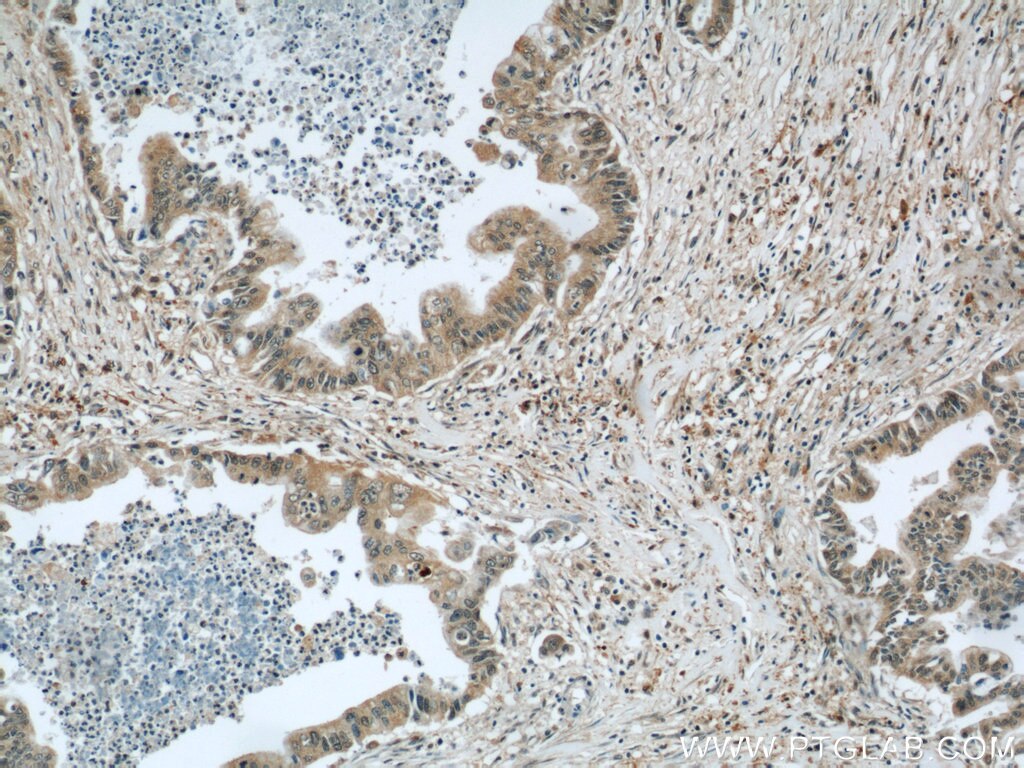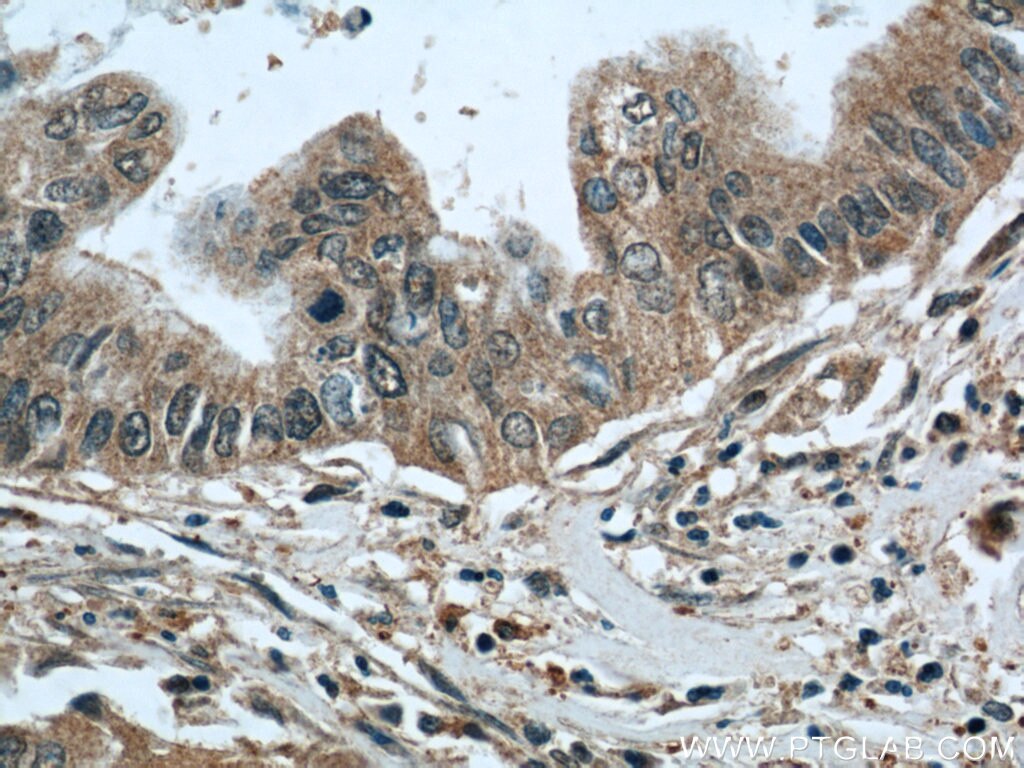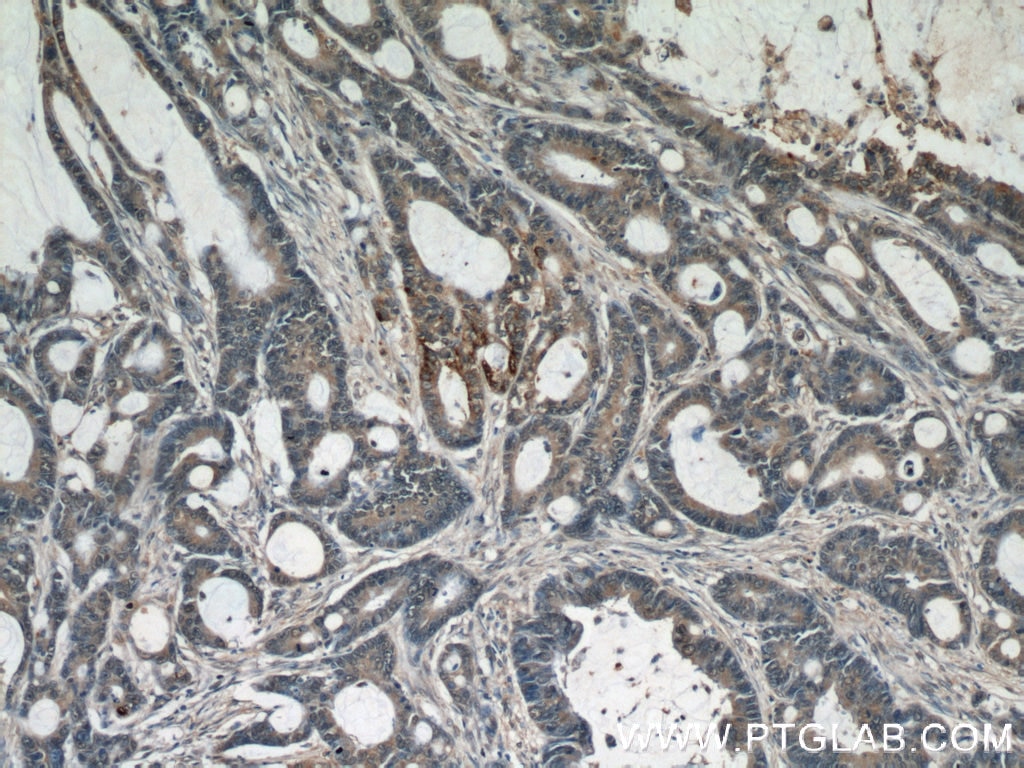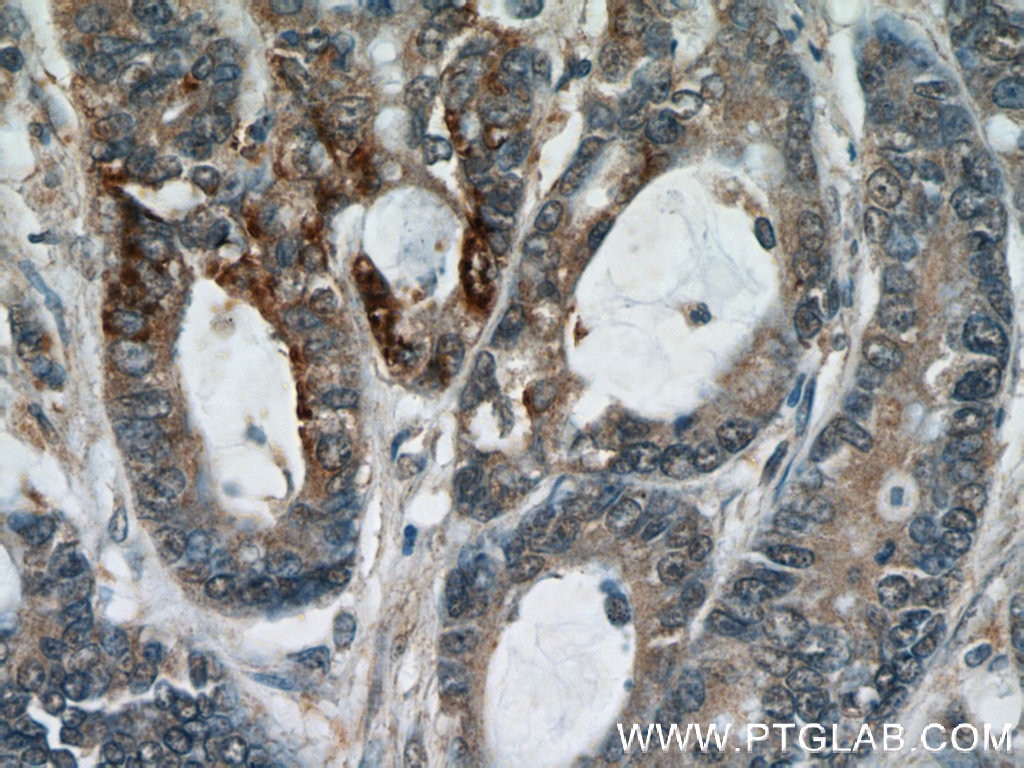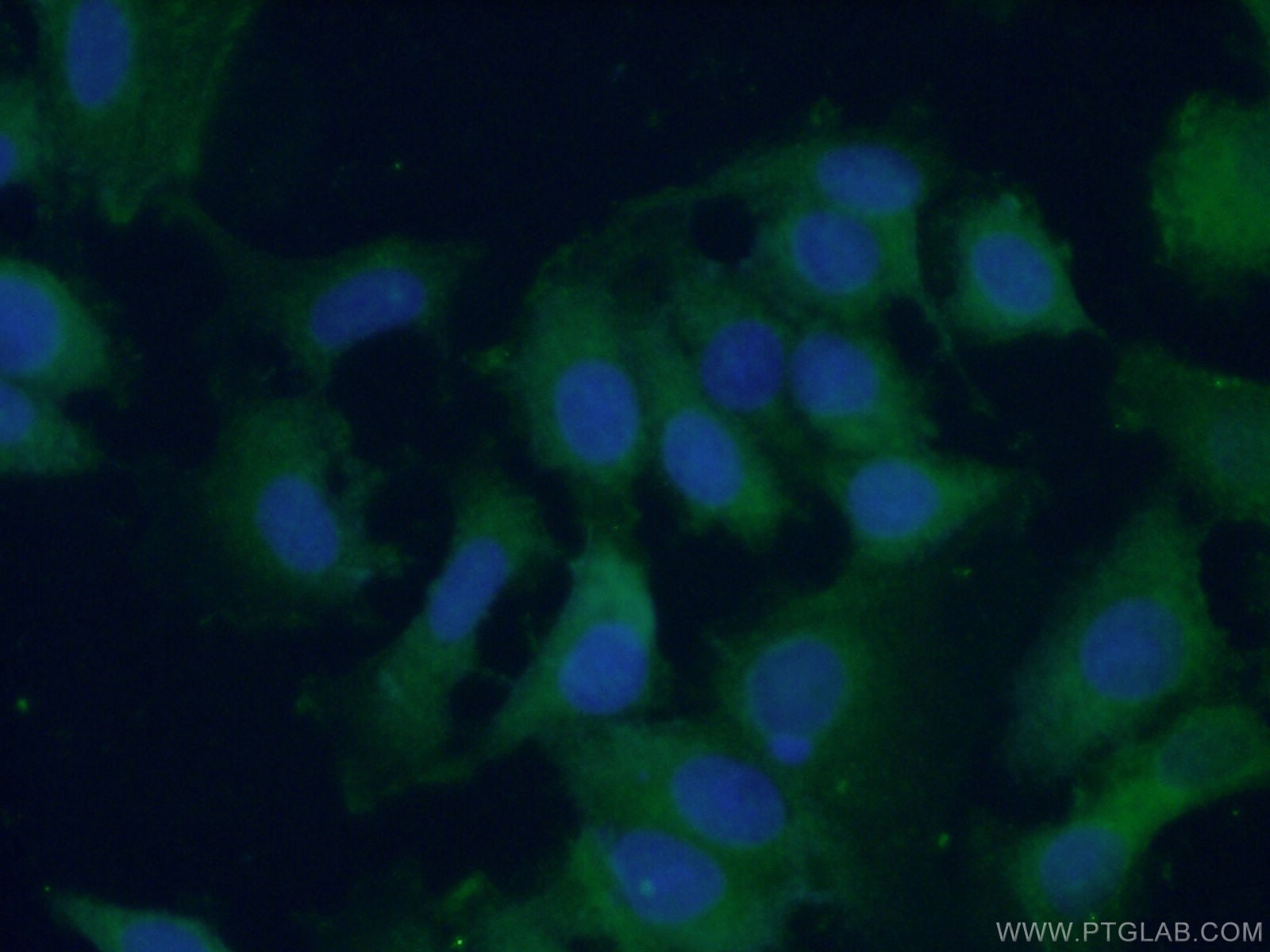RPL38 Polyclonal antibody
RPL38 Polyclonal Antibody for WB, IF, IHC, ELISA
Host / Isotype
Rabbit / IgG
Reactivity
human, mouse, rat
Applications
WB, IF, IHC, ELISA
Conjugate
Unconjugated
Cat no : 15055-1-AP
Synonyms
Validation Data Gallery
Tested Applications
| Positive WB detected in | HeLa cells, MCF-7 cells |
| Positive IHC detected in | human pancreas cancer tissue, human colon cancer tissue Note: suggested antigen retrieval with TE buffer pH 9.0; (*) Alternatively, antigen retrieval may be performed with citrate buffer pH 6.0 |
| Positive IF detected in | MCF-7 cells |
Recommended dilution
| Application | Dilution |
|---|---|
| Western Blot (WB) | WB : 1:500-1:3000 |
| Immunohistochemistry (IHC) | IHC : 1:20-1:200 |
| Immunofluorescence (IF) | IF : 1:50-1:500 |
| It is recommended that this reagent should be titrated in each testing system to obtain optimal results. | |
| Sample-dependent, Check data in validation data gallery. | |
Product Information
15055-1-AP targets RPL38 in WB, IF, IHC, ELISA applications and shows reactivity with human, mouse, rat samples.
| Tested Reactivity | human, mouse, rat |
| Host / Isotype | Rabbit / IgG |
| Class | Polyclonal |
| Type | Antibody |
| Immunogen | RPL38 fusion protein Ag7038 |
| Full Name | ribosomal protein L38 |
| Calculated Molecular Weight | 8 kDa |
| Observed Molecular Weight | 8 kDa |
| GenBank Accession Number | BC000603 |
| Gene Symbol | RPL38 |
| Gene ID (NCBI) | 6169 |
| RRID | AB_10858918 |
| Conjugate | Unconjugated |
| Form | Liquid |
| Purification Method | Antigen affinity purification |
| Storage Buffer | PBS with 0.02% sodium azide and 50% glycerol pH 7.3. |
| Storage Conditions | Store at -20°C. Stable for one year after shipment. Aliquoting is unnecessary for -20oC storage. 20ul sizes contain 0.1% BSA. |
Protocols
| Product Specific Protocols | |
|---|---|
| WB protocol for RPL38 antibody 15055-1-AP | Download protocol |
| IHC protocol for RPL38 antibody 15055-1-AP | Download protocol |
| IF protocol for RPL38 antibody 15055-1-AP | Download protocol |
| Standard Protocols | |
|---|---|
| Click here to view our Standard Protocols |
Publications
| Species | Application | Title |
|---|---|---|
Oncol Rep PP2A inhibitors suppress migration and growth of PANC-1 pancreatic cancer cells through inhibition on the Wnt/β-catenin pathway by phosphorylation and degradation of β-catenin. |
